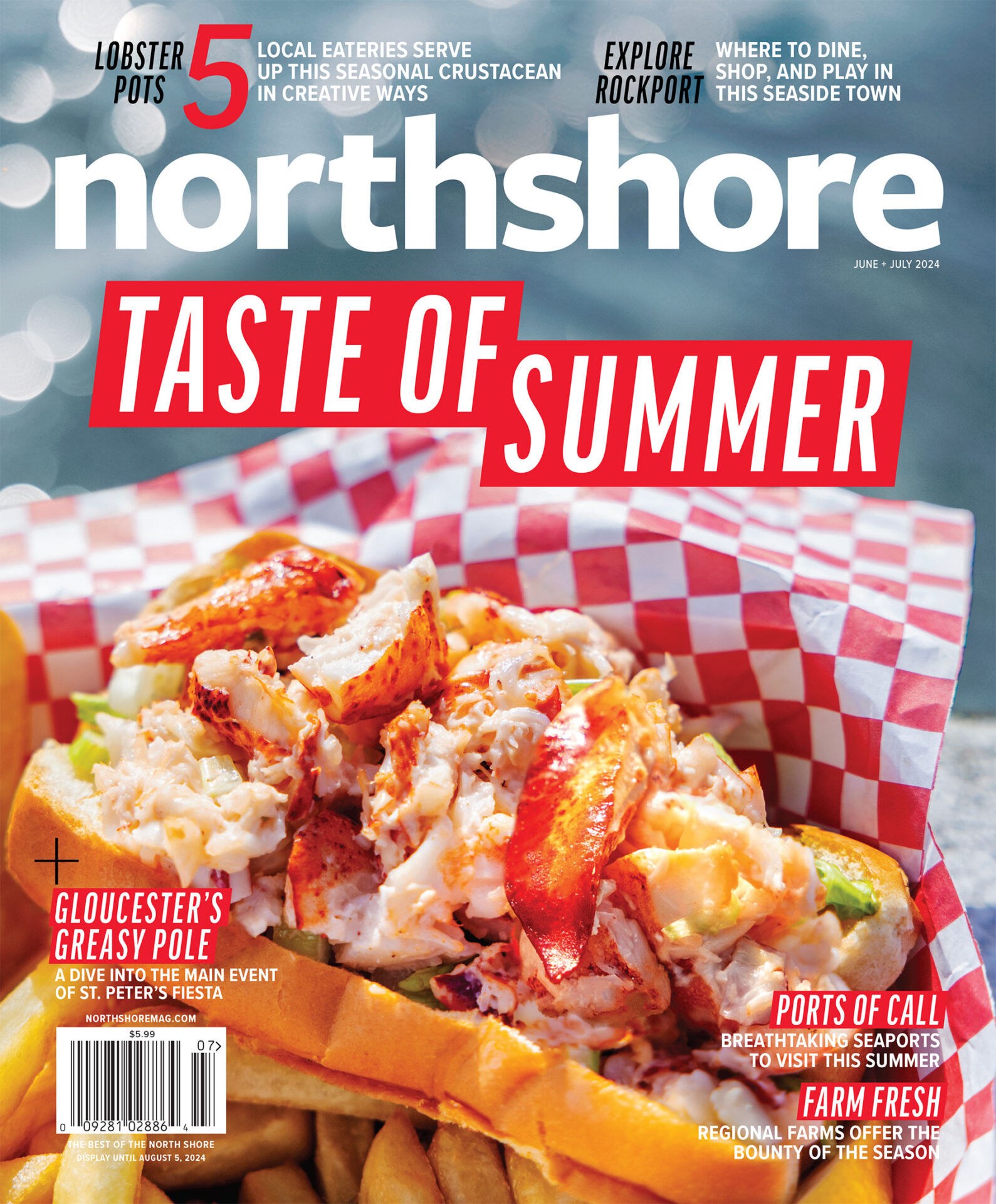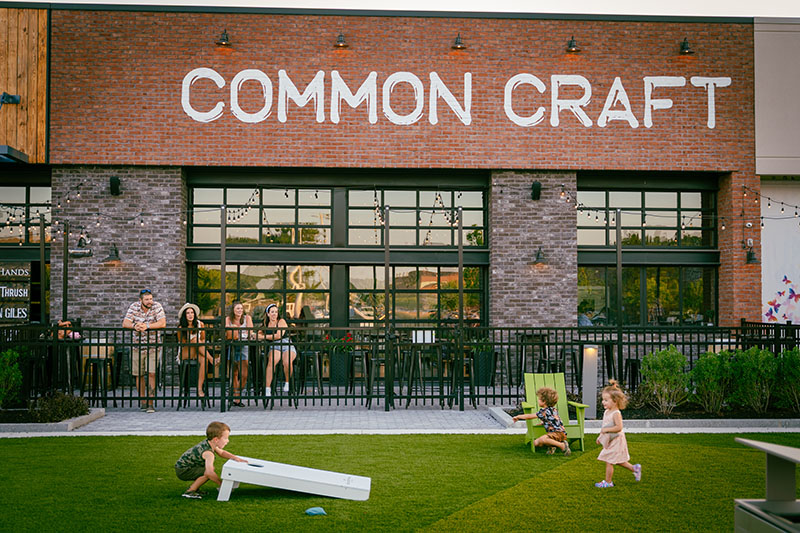Imagine going out for drinks with some friends—one of you wants to hit a taproom to explore the newest local brews, another wants a glass of really great wine from a small producer. But you just want a cocktail—preferably made with locally distilled gin.
You could just go to a bar, but no one might get exactly what they want. Or you could go to Common Craft in Burlington. This hybrid, sprung from the brain of owner Larry Leibowitz—part of the dynamic restaurant duo who brought you Salem’s Bambolina and Kokeshi—brings several small artisanal producers together in a unique space that once housed the Sears department store in the Burlington Mall. Where people used to shop for lawn mowers, power tools, and washer/dryers, a convivial crowd is now sipping on sour beer, locally crafted spirits, and small production Barolo.
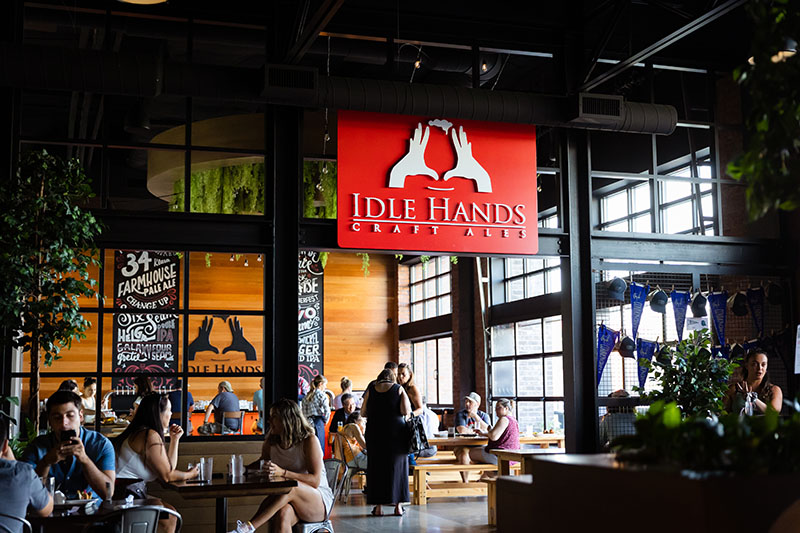
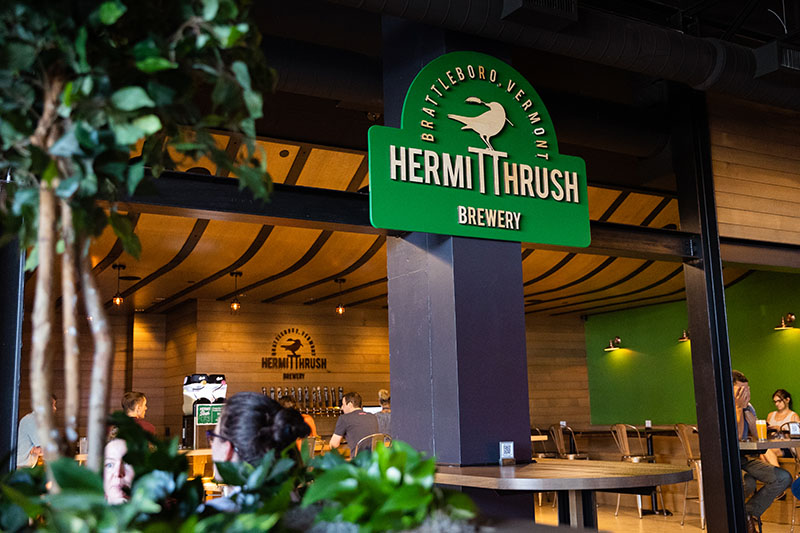
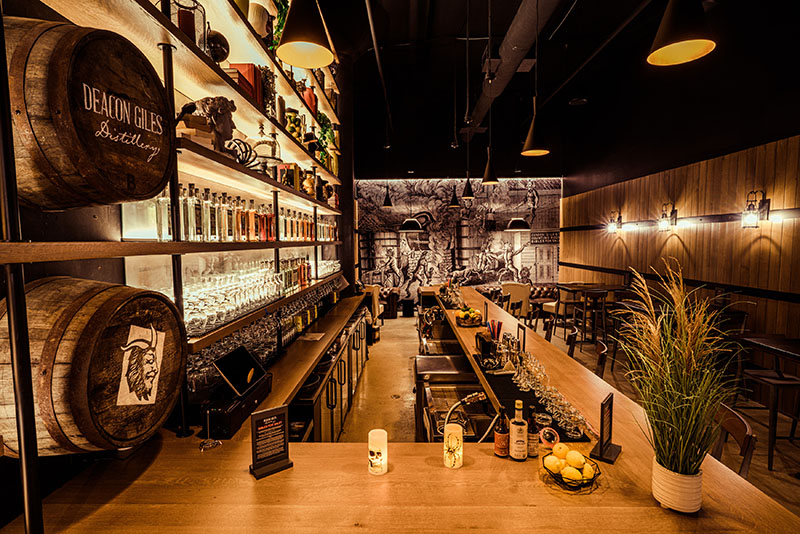
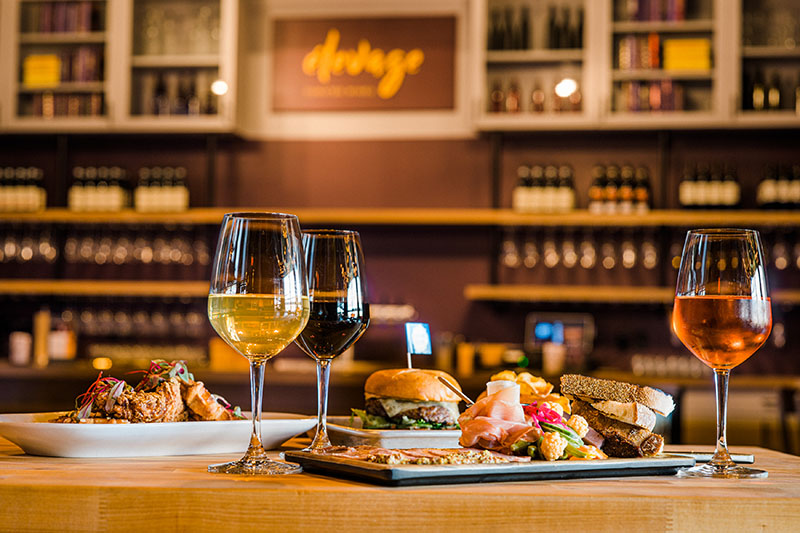
More than just selling selections from small producers, Leibowitz has created a sort of craft beverage theme park. Common Craft currently features Hermit Thrush, a Vermont maker of sour beer with local yeast; Malden craft brewer Idle Hands; Salem, Mass., distillery Deacon Giles; and Vineyard Road, a Massachusetts-based distributor of artisanal wine. Each of the four has its own themed tasting room in the large space, using the brand’s signature design details. So Deacon Giles, for example, feels like a hidden speakeasy, with low lights and one wall plastered with the brand’s signature black-and-white woodcut of devils distilling spirits.
“To put multiple taprooms under one roof gives the consumer a chance to experience more than one thing without leaving the building,” Leibowitz says. “We’re paying homage to the individual brands—how they pour the beer, their service, and even the style of the glassware.”
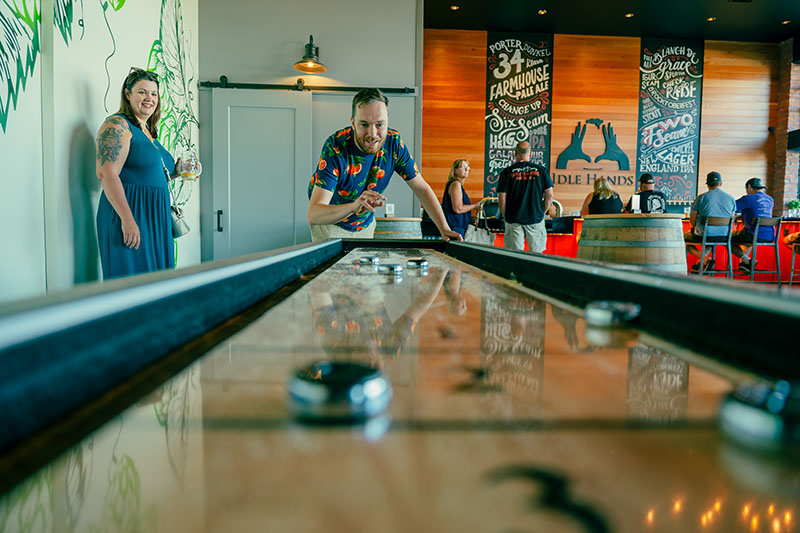
It’s a bit tricky to explain, because it’s a pretty unique concept. Unlike a food hall, where each stall is rented and run individually, thus competing with one another, Common Craft owns and operates each themed bar, employs the workers, and pays the costs of designing each space, all of which share a central great hall. Because of that, people can purchase a beer in Idle Hands, for example, then bring it to sit at the bar at Deacon Giles. Unique QR codes at each seating area enable guests to order food from a common menu and get it delivered wherever they are sitting—creating a movable feast of perhaps the edamame dumplings or the toasted cauliflower with cocktails in the Deacon Giles space, followed by Savenor’s Butter Burger with a beer at Idle Hands, finishing up with a charcuterie board at wine bar Elevage.
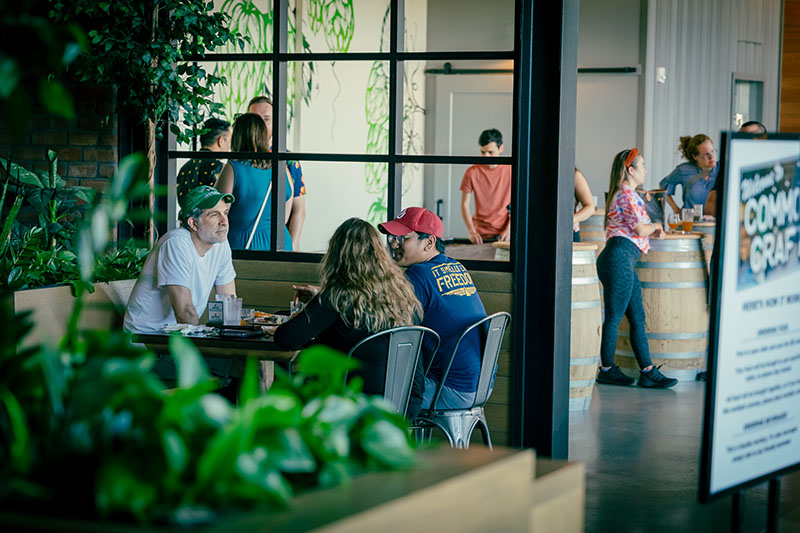
“The hardest part right now is trying to put us in a bucket,” Liebowitz says. “Because we’re not a food hall. We’re not a beer hall. We’re not a beer garden, we’re not a bar, we’re not a taproom or a tasting room. We’re like none of them and all of them at the same time.”
Whatever they are, it was a no-brainer for Ian Hunter, cofounder of Deacon Giles Distillery, to jump in. “It seemed like such a great opportunity to see our brand represented correctly, but without a lot of the headaches of actually opening up a second space,” Hunter says, noting that the lead bartender at their Salem Speakeasy Lab works closely with the lead bartender at Common Craft, ensuring that there is cohesion between the two. And in terms of the space, anyone who has visited both locations will attest that Common Craft’s architect and designer truly brought the Deacon Giles brand to the mall, from the mix of stainless steel and wood décor to the neon “Bibles for Sale” sign at the entrance. “The designer really did a great job of capturing our brand and feel. While it’s obviously a different space, it has a lot of our personality.”
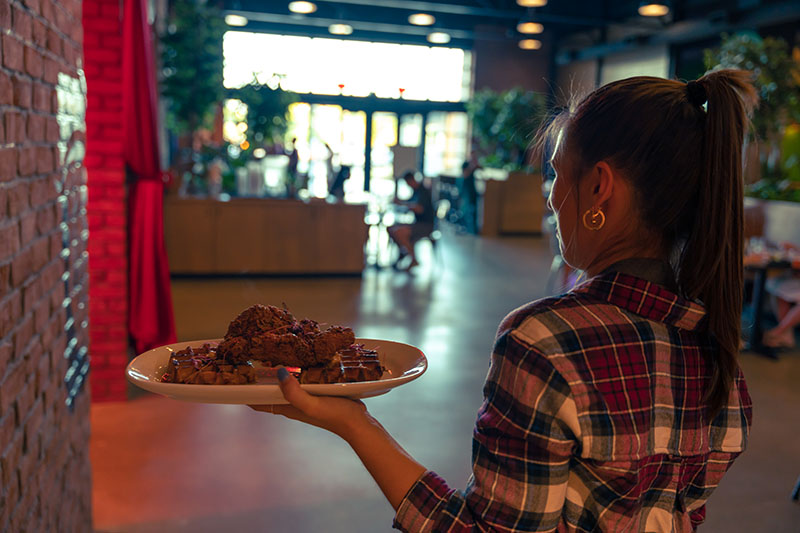
Deacon Giles’ dark den-of-iniquity vibe stands in amusing contrast to the other spaces, which feature better lighting with big windows. Skeeball stands in one corner of the central great room, next to shelves full of board games, and there’s also shuffleboard and a vintage Tapper beer video game.
“It is extremely accessible, not only in location and proximity, but it’s unpretentious,” Leibowitz says, noting that families are welcome—his own kids can amuse themselves for hours, playing cornhole outside, board games inside, and feasting on the special children’s menu.
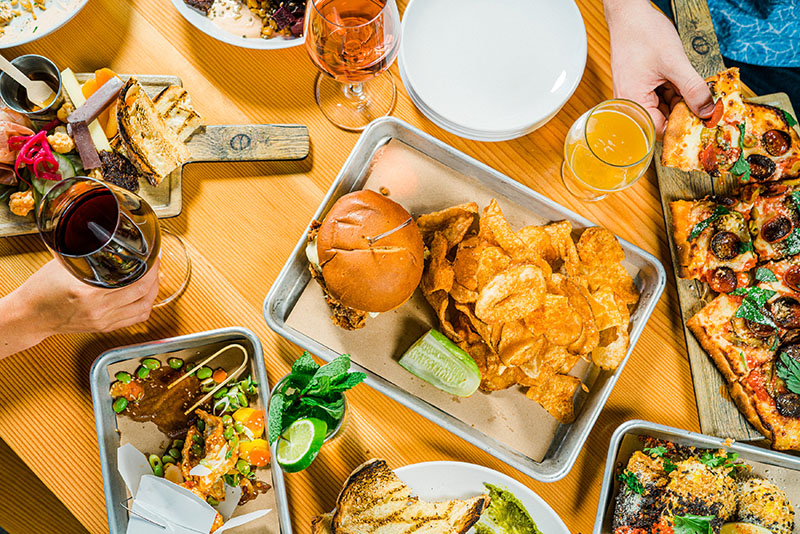
Leibowitz envisions changing up the producers every 18 months or so—and could even go beyond beverages. “It could be anything—a woodworker, a cheesemonger, a candle maker, and a cannabis store—if that was legal. I see a lot of expansion for the concept.”
Perhaps even into a second location, but that’s a way off, Leibowitz says. “I absolutely have bigger plans than Burlington, but I want to take it slow and make sure that we get it right. I like the idea that we’re doing something good: giving the craft producers a chance to thrive and get to wherever that next level is.”
